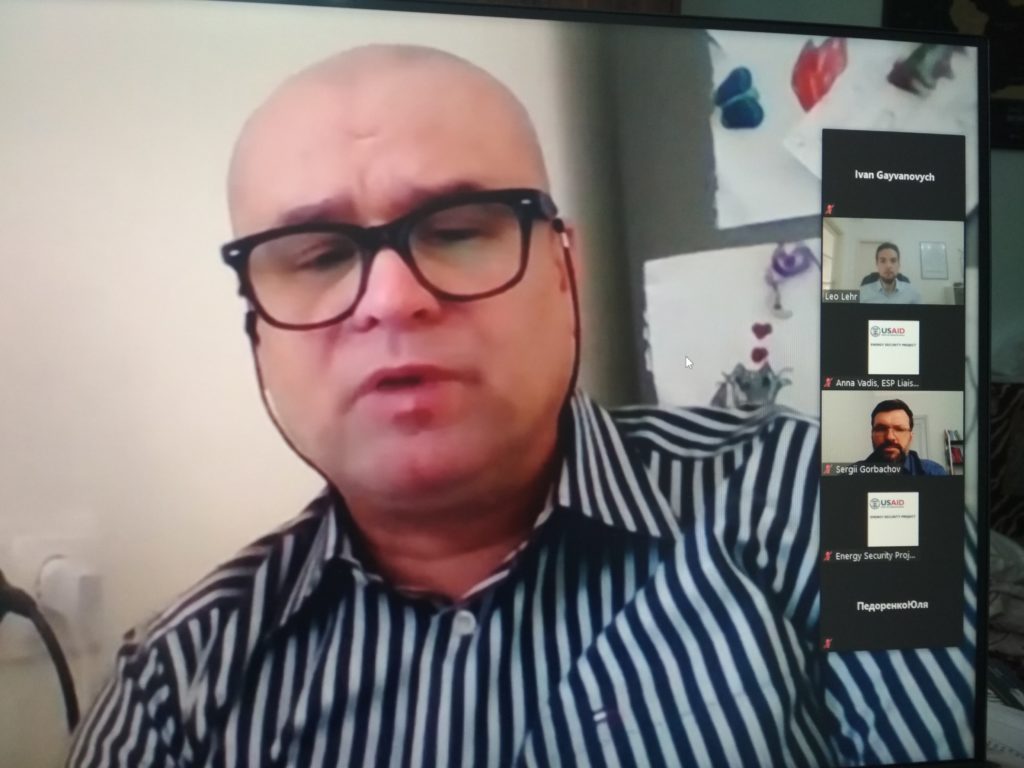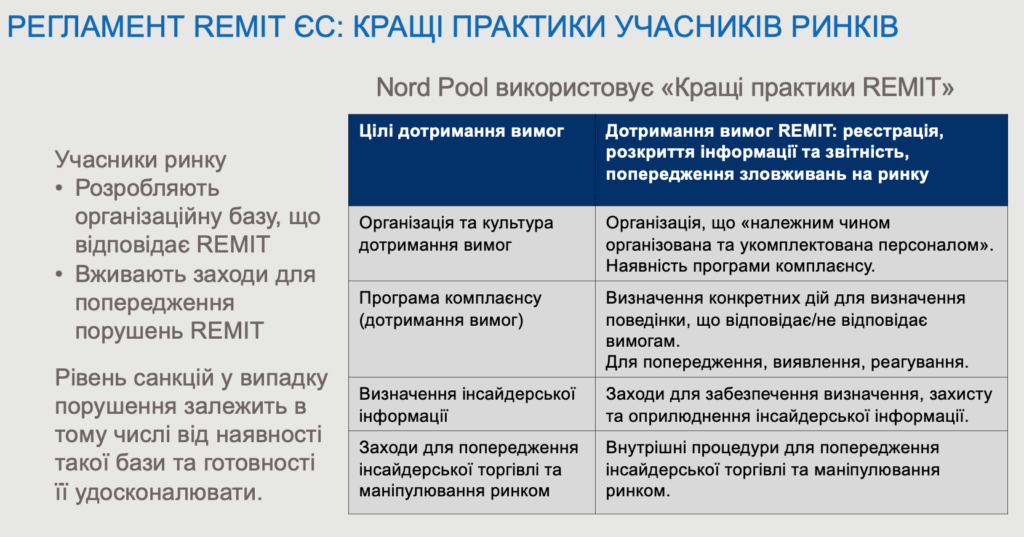On February 18, 2021, the USAID Energy Security Project (ESP) and the National Energy and Utilities Regulatory Commission (NEURC), implemented the second part of the online seminar “Best European Practices for Ensuring the Integrity and Transparency of Energy Markets.”
This time, the seminar focused on Austrian experience. Leo Lehr, representative of the Austrian regulator E-Control, stressed that the ultimate goal of this body is to “ensure open and fair competition in energy markets for end users.”

E-Control is the Austrian gas and electricity market regulator that carries out supervision and, in particular, monitoring; since the introduction of REMIT, it also investigates market violations.
Speaking about REMIT (EU Regulation on Energy Markets Integrity and Transparency), Leo Lehr focused on the meaning of keywords in the Regulation’s title. Integrity, according to the Austrian expert, means the absence of market abuse and market manipulation, as well as ensuring price compliance with the main market processes. At the same time, transparency refers to the disclosure of information and data in connection with market monitoring.
REMIT envisages the following responsibilities for market participants:
- registration of market participants;
- publication of inside information;
- reporting of transaction data;
- reporting of fundamental data;
- the duty of persons who professionally arrange transactions to monitor and report suspicious transactions.
Leo Lehr further stated that, according to REMIT, insider trading and market manipulation are punishable. In Austria, fines may be as high as up to €150,000, and in case of insider trading, even imprisonment for up to three years. He noted that throughout the EU there is no single model for a regulator’s powers to apply sanctions. In Austria, however, the responsibilities to investigate violations in the energy markets and to apply sanctions are divided. “E-Control, within its powers, monitors the energy markets, investigates abuses, and requests sanctions, while it is the state prosecutor’s office and courts of law that apply sanctions,” he indicated.

E-Control’s organizational structure is such that it is independent of current politics and the political, economic, or financial interests of government or industry. Its managing bodies consist of an Executive Committee, a Regulatory Committee, a Supervisory Board, and an Advisory Board, as well as a secure IT environment for the regulator to handle, process, and analyze data. Software constantly scans the market and detects suspicious signals. If there is a suspicious case, an employee is appointed to deal with it. Following an investigation, this person draws up a report with evidence of the violation, or statements to the contrary. This report is then assessed internally by E-Control and submitted to the Prosecutor’s office, with a request for a fine. It then undergoes a standard procedure before the courts of law. Leo Lehr stressed that the Austrian regulator needs to prove violations in court, or before the Prosecutor, because it has broad powers to investigate the case first. In addition to that, E-Control works closely with the Austrian antitrust authority.
In the second part of the seminar, Lucian Palade, an expert in energy market monitoring and surveillance from Romania who currently works for the consulting company Mercados-Aries as a USAID ESP subcontractor, presented an overview of the market monitoring and surveillance practices in a number of other EU countries (France, Germany, Italy, Hungary, Czechia, and Romania) and Great Britain.
The seminar was attended by representatives of the Ministry of Energy of Ukraine, the Committee on Energy and Housing and Communal Services of the Verkhovna Rada of Ukraine, NEURC, the Antimonopoly Committee of Ukraine, and the National Commission on Securities and Stock Market.
Olga Babiy, a NEURC member, admitted that for her personally the Austrian regulator’s experience constitutes one of the best examples of regulation in Europe, and she is especially interested in using it because of that.
Sukru Bogut, USAID Ukraine Senior Energy Advisor, stressed that while developing competitive energy markets in Ukraine, the regulator should implement the best practices to ensure transparency and integrity. According to him, USAID will continue supporting Ukraine’s transition to well-functioning energy markets and, amongst other factors, this will be facilitated by an automated data collection and analysis system for NEURC’s market monitoring, which will soon be launched with USAID ESP assistance. He also affirmed that the United States Agency for International Development will continue to support any further steps taken by Ukrainian stakeholders in the future to comply with REMIT.
